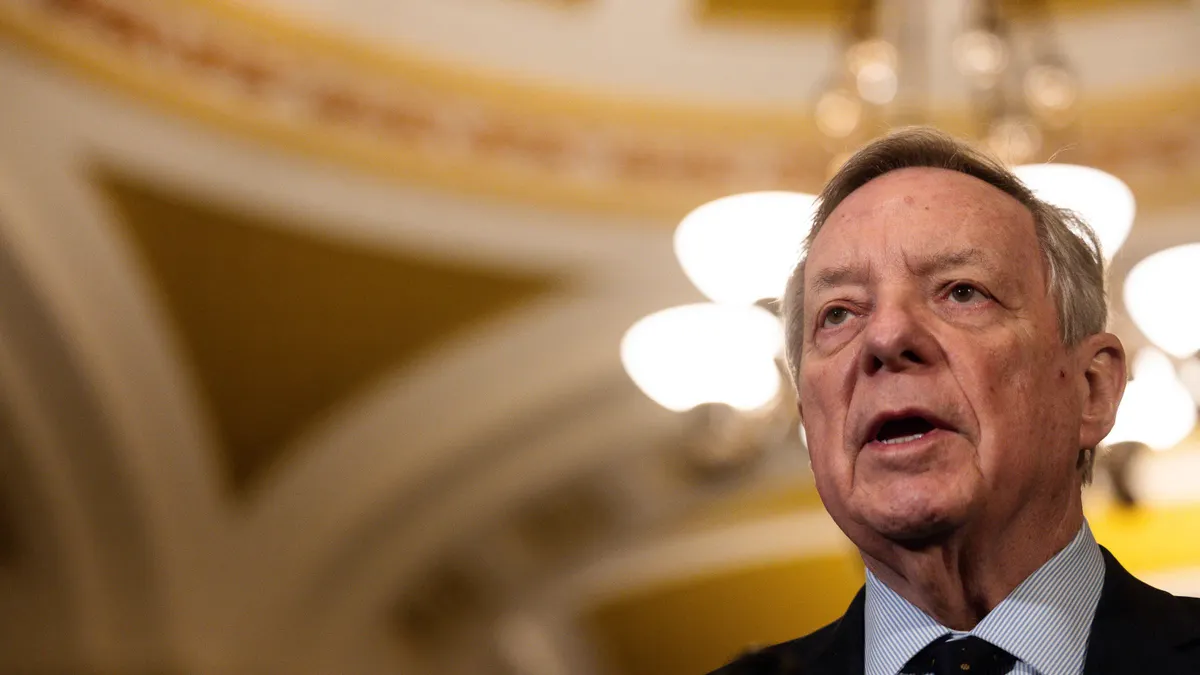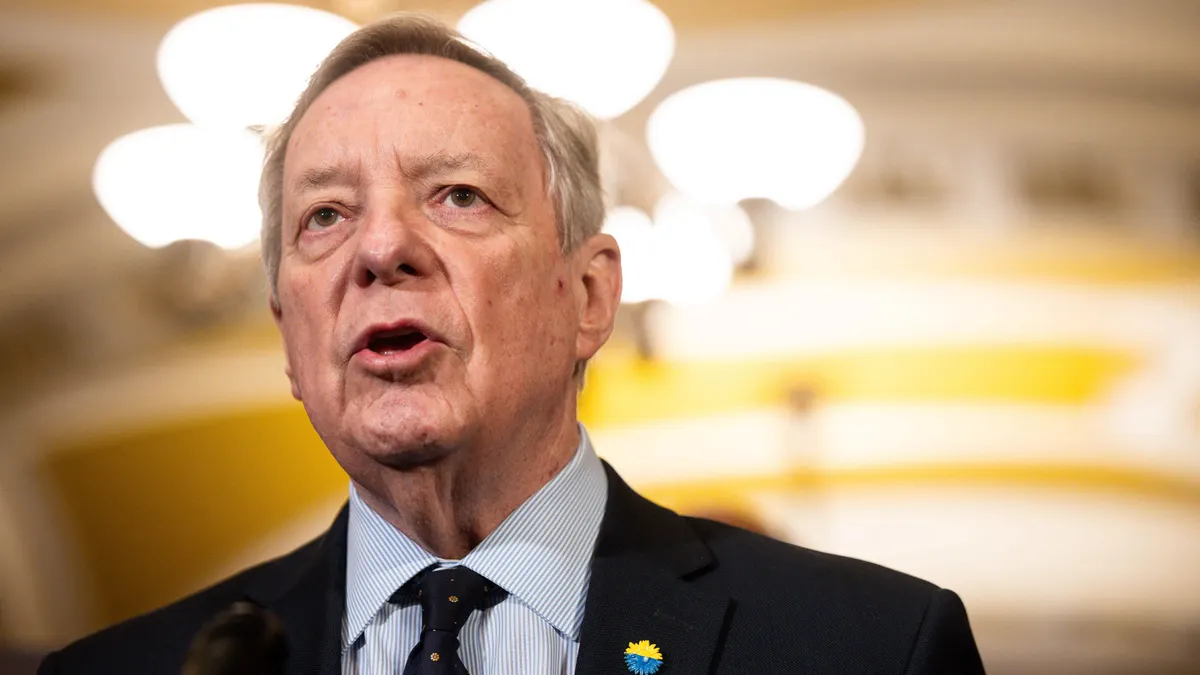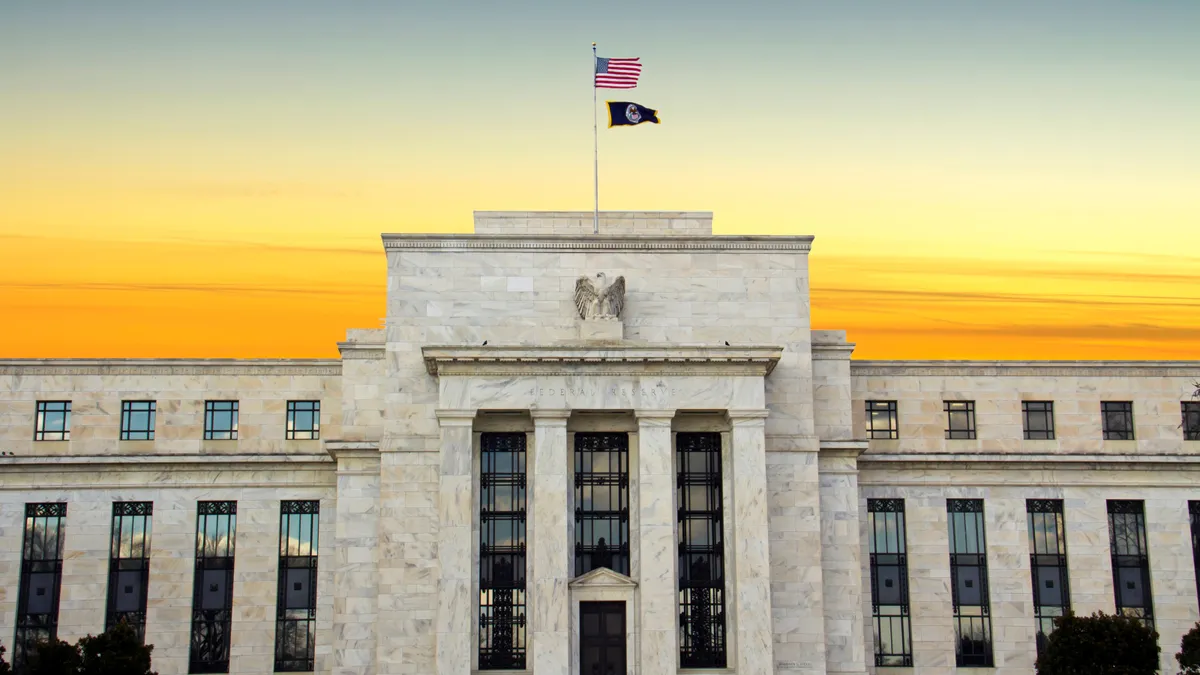In the 2001 film "The Majestic," Jim Carrey plays a screenwriter who is brought to Washington to face a congressional committee over suspicion that he is a communist sympathizer. After Carrey’s character gains little sympathy from the panel — despite maintaining his innocence — his attorney pleads with him, "Just give them a name" (of another suspected communist). He ultimately names the person who led the committee to him in the first place.
Alex Mashinsky, CEO of the crypto lender Celsius, told the Financial Times on Tuesday that Tether, the world’s largest stablecoin issuer, has at times issued its USDT units in exchange for well-known cryptocurrencies rather than the dollars it promises in its terms.
One-to-one dollar-to-token backing is pivotal to the concept of stablecoins. But both the New York attorney general and the Commodity Futures Trading Commission (CFTC) have accused Tether of not having sufficient reserves at all times to back up their stablecoins. Enough so that Tether and its affiliated exchange Bitfinex have agreed to pay more than $60 million in penalties this year in those cases combined.
Mashinsky’s disclosure should be a bombshell. But, coming days after Tether agreed to pay $41 million to settle the CFTC’s allegations, it amounts to little more than a logical conclusion. Tether, for its part, neither admitted nor denied the allegations, saying it had corrected the issues connected to the CFTC probe when it updated its terms of service in February 2019.
"This inquiry arose during a markedly different time in our ecosystem, and focused on the same types of challenges that many in our industry faced at the time," Tether said Friday, according to The Wall Street Journal. "As many companies around the world do, Tether agreed to resolve this matter in order to move forward and focus on the future."
Mashinsky said digital-currency-for-stablecoin loans through Tether are usually overcollateralized by at least 30%, depending on market volatility. "If Bitcoin drops, they give us a margin call [and then] we have to give them more Bitcoin," he told the Financial Times.
New USDT is issued for those loans, then destroyed when the loan is closed "so it does not permanently increase USDT in circulation," Mashinsky added.
"If you give them enough collateral, liquid collateral, Bitcoin, Ethereum and so on ... they will mint Tether against it," Mashinsky told the Financial Times.
By contrast, Tether’s terms of service, last updated in May 2020, explicitly state digital currencies are not accepted for payments. "Only money will be accepted upon issuance," the terms read.
Tether declined to detail to the Financial Times how its USDT lending operates or to clarify whether it was issuing new tokens through those loans.
"We have a select, small group of customers that borrow USDTs in exchange for posting security," Tether told the publication. "These loans are secured by collateral in Tether’s possession of well in excess of 100 percent of the loan proceeds and earn monthly interest.
"Our lending program was first disclosed long ago in our reserves breakdown and is not a secret," the issuer added. "This lending is undertaken narrowly, efficiently, securely and profitably."
New York's spotlight on Celsius
So how, in this scenario, does Mashinsky relate to the Jim Carrey character?
Celsius, it turns out, is one of three crypto lending platforms New York Attorney General Letitia James asked Monday to provide more details about their operations. Neither James nor her office named the companies in a press release — and the names were redacted in versions of letters posted to the state office’s website. However, according to Bloomberg, the letter requesting more information contained "Celsius letter" in the title. The company confirmed to the wire service it received the letter.
"Cryptocurrency platforms must follow the law, just like everyone else, which is why we are now directing two crypto companies to shut down and forcing three more to answer questions immediately," James said in Monday’s release.
Under the attorney general’s order, Celsius and two other platforms must submit, by Nov. 1, detailed explanations of their business models, including the nature of any lending and deposit products.
James did not name the two platforms to which the state sent cease-and-desist orders, but Nexo Financial confirmed to Bloomberg it was a recipient. James’ office said in its letter to Nexo and another firm that it had evidence the platforms violated the Martin Act by selling security products without being registered with the state as a broker-dealer. The state gave the companies 10 days to comply.
Nexo co-founder Antoni Trenchev told Bloomberg the company doesn’t offer its lending or exchange products in New York "so it makes little sense to be receiving a C&D for something we are not offering in NY anyway."
The actions make New York the sixth state this year — after New Jersey, Texas, Alabama, Kentucky and Vermont — to order some crypto firms to stop offering what they consider unlicensed products. BlockFi’s interest-bearing accounts have been a common target. But New Jersey and Texas last month sought to restrict Celsius.
In effect, Mashinsky’s comments to the Financial Times may be a primer for a reply to James: "Why don’t you ask Tether?" (Celsius, incidentally, counts Tether as an equity investor.)
Already on the radar
The catch is, James has already settled with Tether. The exchange agreed in February to pay the state $18.5 million to address allegations it hid the loss of commingled client and corporate funds and lied about their reserves.
In that sense — to borrow a phrase attributed to the late Defense Secretary Donald Rumsfeld regarding weapons of mass destruction during the Iraq War — Tether's spot in the regulatory cross-hairs is a "known known."
Tether has long been on federal radar, too. It reportedly was a major focus of a July meeting of the President’s Working Group on Financial Markets — during which Treasury Secretary Janet Yellen urged regulators to "act quickly to ensure there is an appropriate U.S. regulatory framework in place."
The Justice Department, Bloomberg reported that month, is investigating whether executives behind Tether committed bank fraud in the currency’s early days by hiding from partner banks that transactions were linked to cryptocurrency.
Among the members of the president’s working group is CFTC Acting Chairman Rostin Behnam, who on Friday said the regulator’s $41.5 million settlement with Tether "highlights the expectation of honesty and transparency in the rapidly growing and developing digital assets marketplace."
Between mid-2016 to Feb. 25, 2019, Tether held equivalent dollar reserves in its accounts "for only 27.6% of the days in a 26-month sample time period" and "misrepresented" that to customers and the market, the CFTC said Friday.
About half of the "stablecoin universe" runs through Tether, the Financial Times reported.
Treasury officials are preparing a report on stablecoins, and the Yellen-led Financial Stability Oversight Council may launch a formal review into whether the tokens pose systemic risk.
However, a crypto lobby group, the Chamber of Digital Commerce, told U.S. regulators in a letter seen by Reuters on Monday that stablecoins pegged to the dollar should be treated like other retail-focused digital payment tools, and not as investment products.
Stablecoins are "not at significant scale to merit a separate, compulsory regulatory regime" simply on the idea that "new technology is being deployed," the chamber said.





















